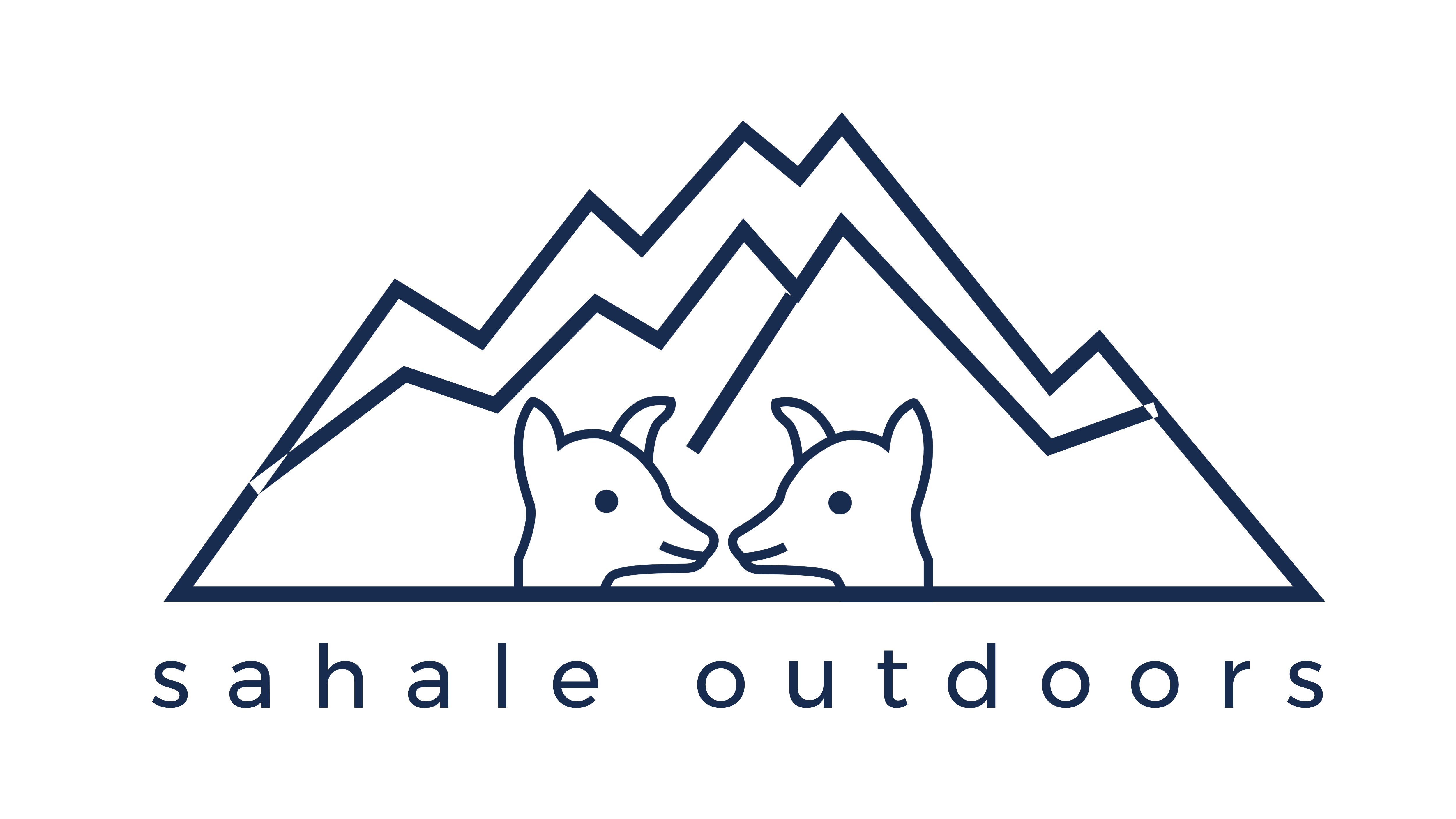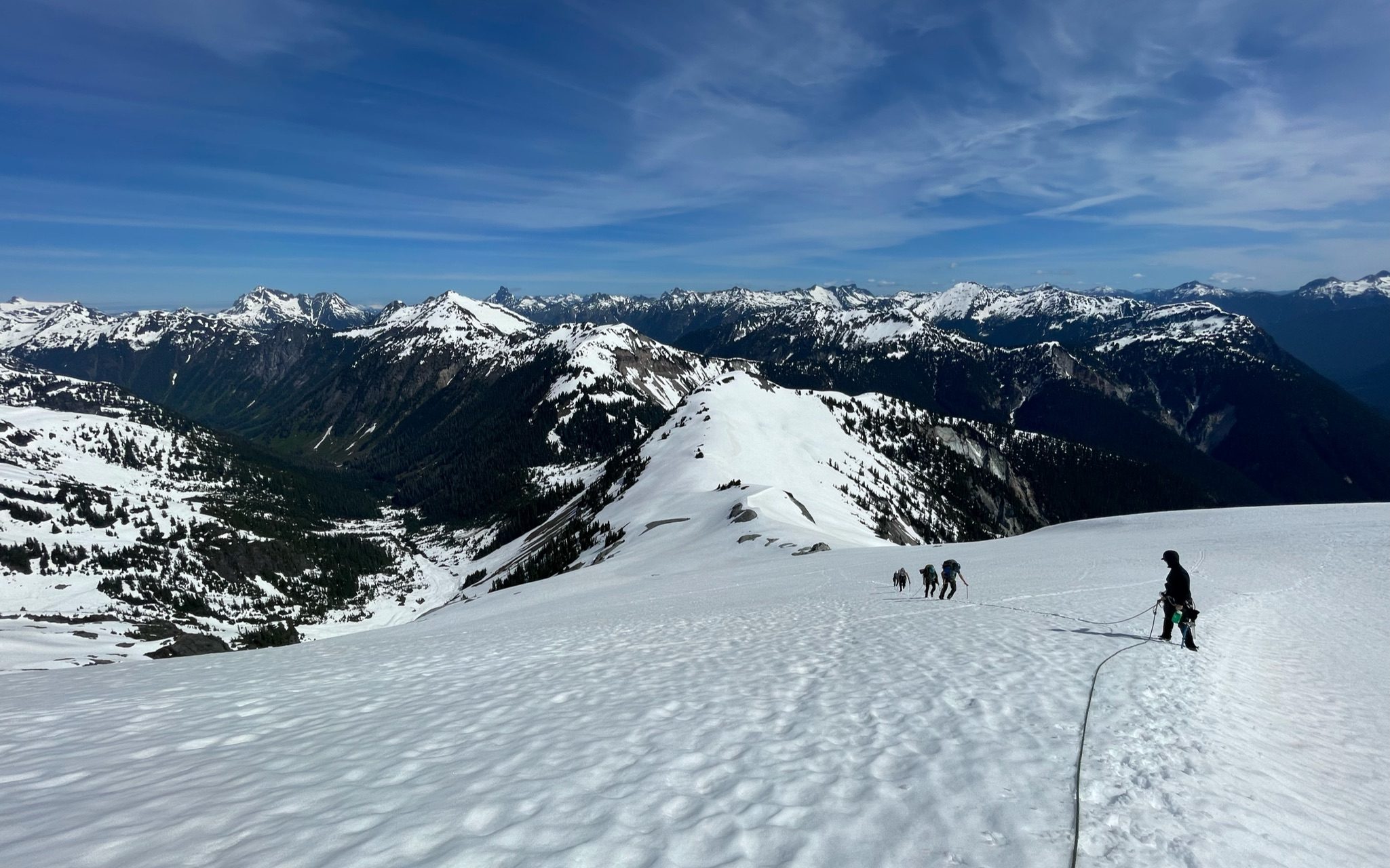
Ruth Mountain
Ruth Mountain
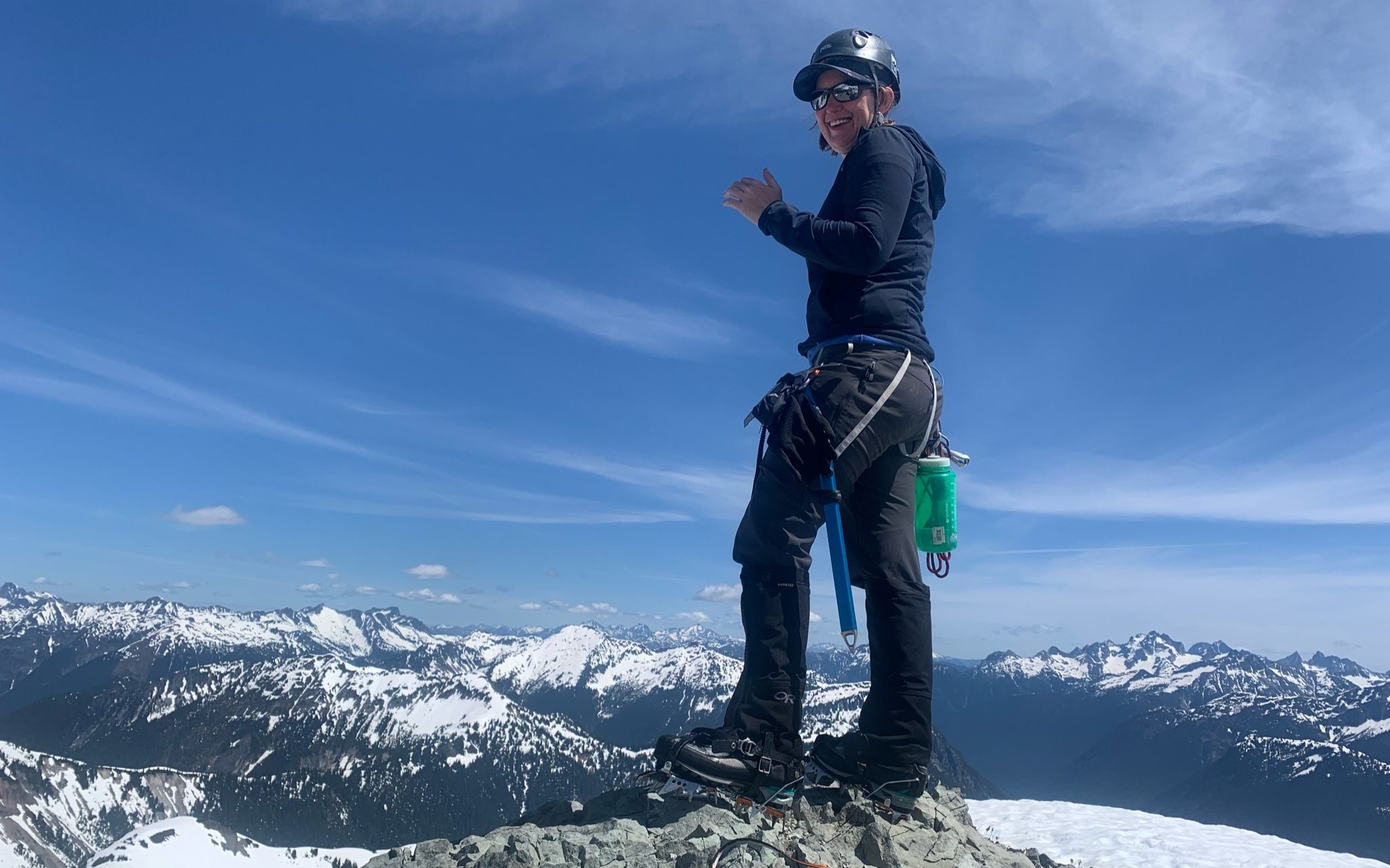
Trip Details
Climb Ruth Mountain in the stunning North Cascades National Park, known as the “American Alps” and take in the spectacular views from the summit of this incredible peak. Ruth is an excellent training ground on the path to climbing other glaciated peaks like Kulshan and Tahoma, while offering a beautiful, inspiring experience. Join one of our trips to have an unforgettable adventure, learn snow skills needed for other mountains, and bond with your community like never before!
We provide all group gear, skilled guides, and instruction. Transportation is provided from the Swamp Creek Park and Ride in Lynnwood and back.
Itinerary
- Day 1: Groups will meet and drive to the trailhead to start hiking around 10-11 AM. The hike to camp will take up to 3 hours, depending on trail conditions. If the snow level allows, the skills clinic will be held in the afternoon. If not, it will occur en route to the summit.
- Day 2: Climb starts around 7-8 AM. The group will have an alternative opportunity for the skills clinic once they reach the high ridge. From there, they will push for the 7,115′ summit before retuning to camp. The return time to the Seattle/Tacoma metropolitan area will be dependent on group speed, trail conditions, and traffic conditions.
Gear Provided
- Tents
- Group kitchen gear, stove, and fuel
- Group gear for mountaineering
- All entrance fees, permits and passes
- First-aid kit and satellite phone
Paperwork
Pre-Trip Gear Check
All personal mountaineering gear must be checked by a Sahale staff member before the trip date. In the two weeks before the trip, gear checks may be scheduled in person at our Education Center in Fife, WA, or virtually over video. The day before the trip is scheduled, the Sahale Education Center in Fife, WA will be open for in-person gear checks.
Personal gear should fit you well, boots should be broken in, and gear should be in good working condition. If you have questions about whether or not your gear will be acceptable, please schedule your gear check earlier, and preferably in person.
Highlights
Stunning views – Mountaineering – Skills clinic
Difficulty Level
Intro: A good route for first-time climbers, requires good physical fitness. Participants must be able to use gear effectively, self-arrest, and travel on a rope team after completing skills clinic.
Length
Two days
2024 Climb:
August 3-4
Price: $800 per person
Includes group gear, transportation, guide fees, and all permits, and passes.
Our mission is to make outdoor recreation accessible to all. If you cannot afford the total trip cost, send us a brief message at trips@sahaleoutdoors.org to request a payment plan or sliding scale pricing.
Photo Gallery
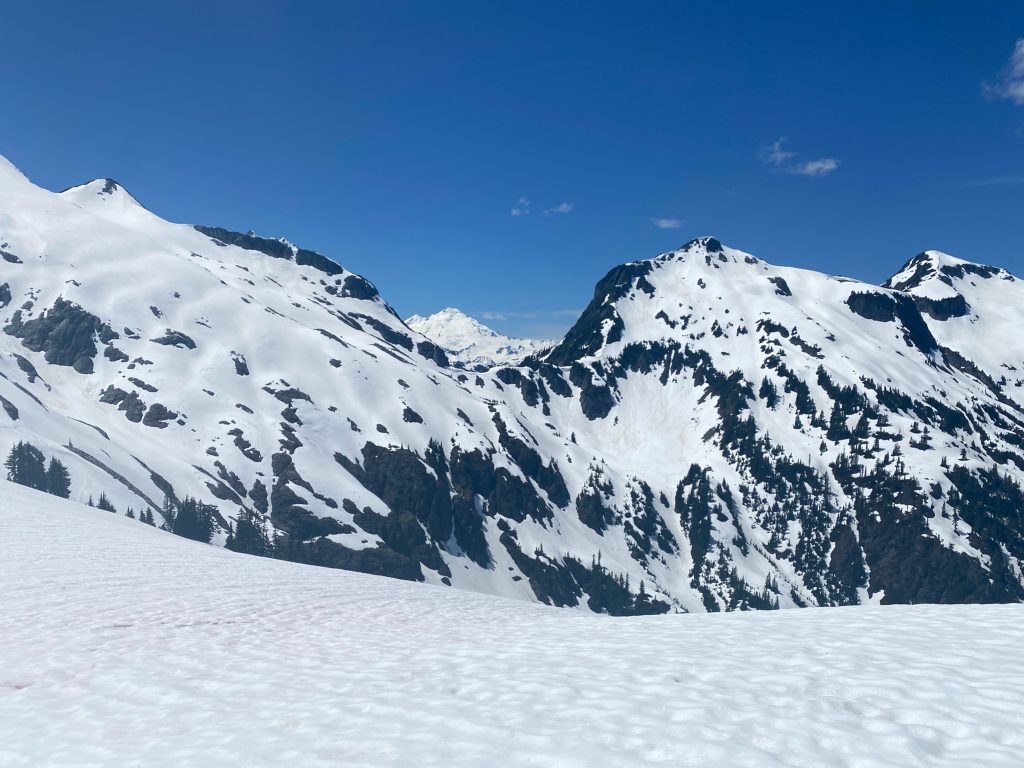
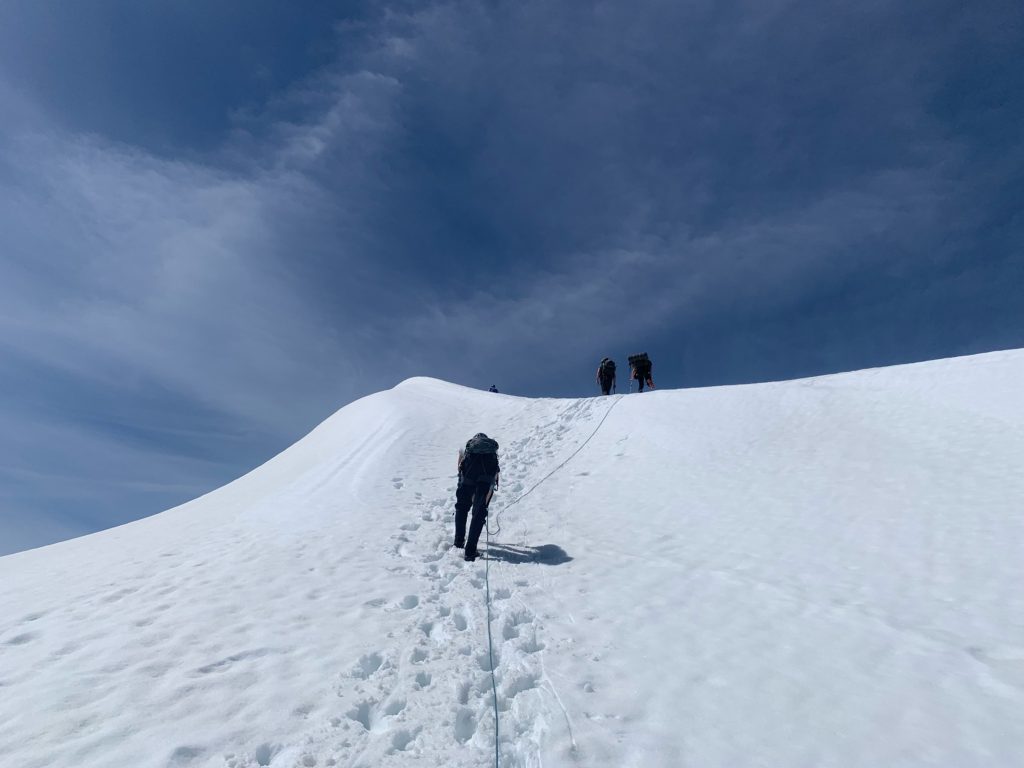
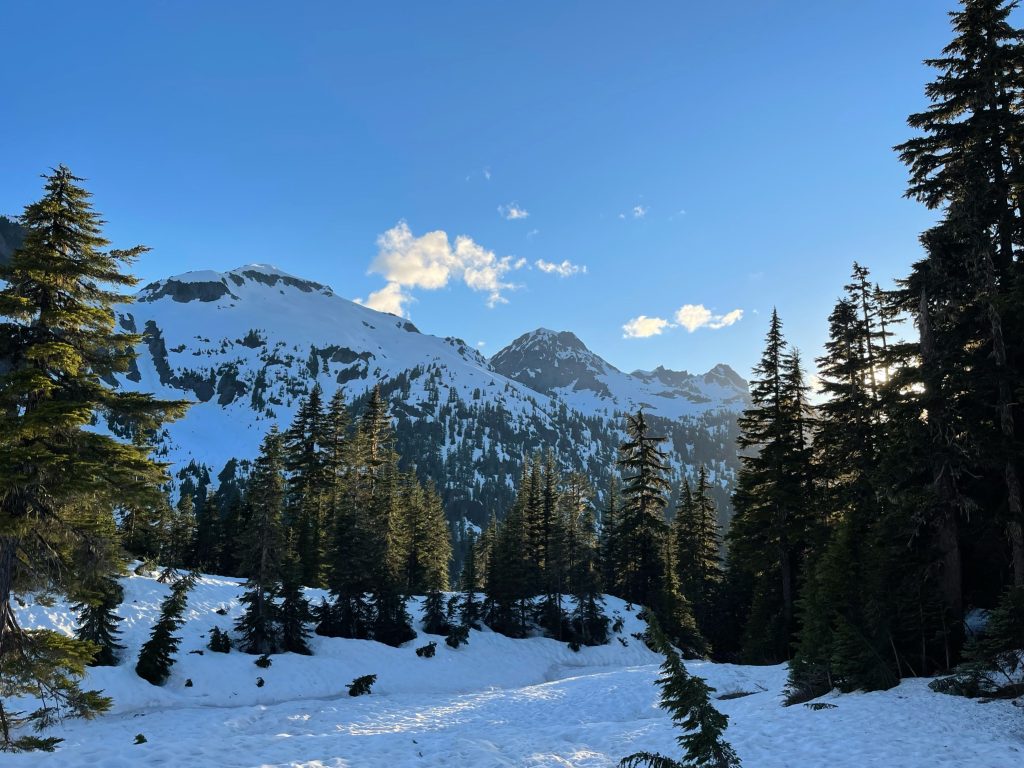
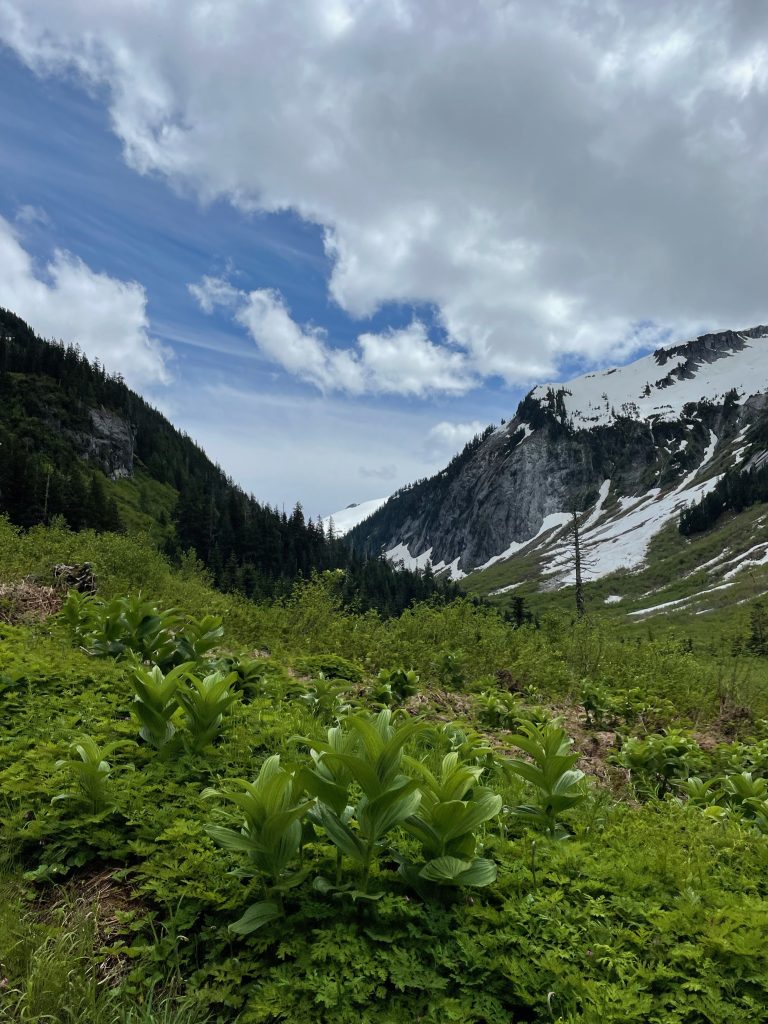
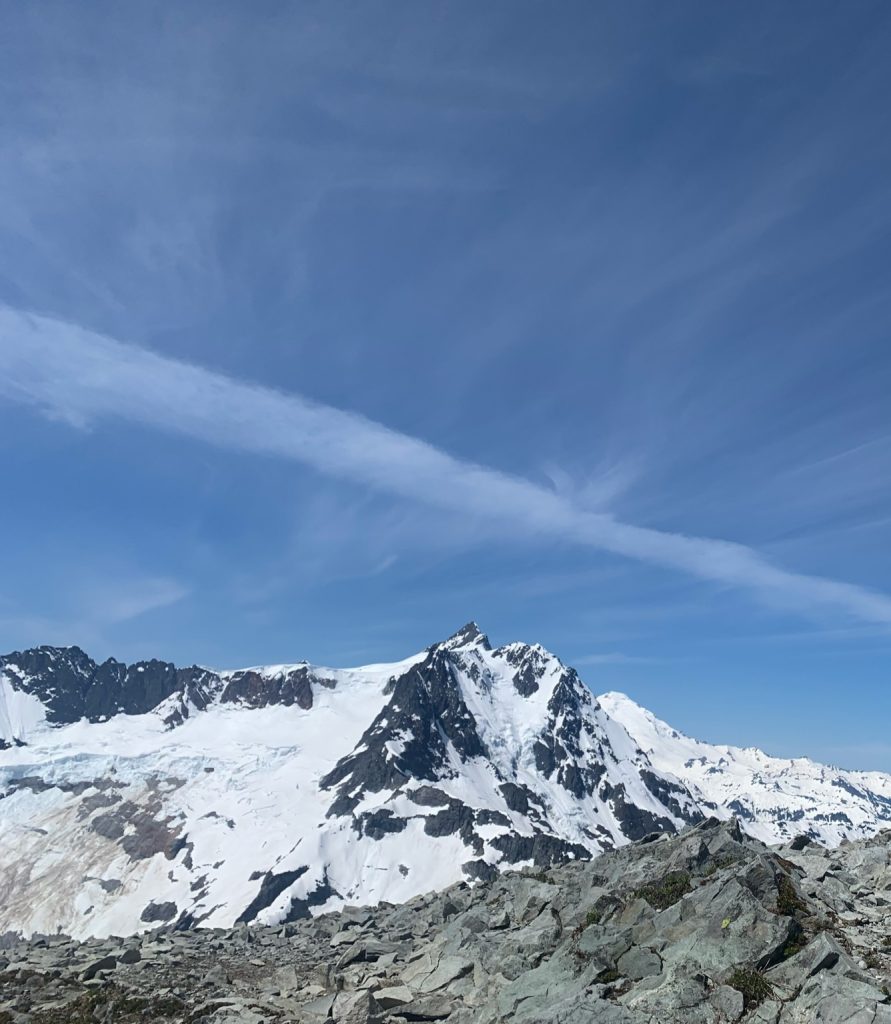
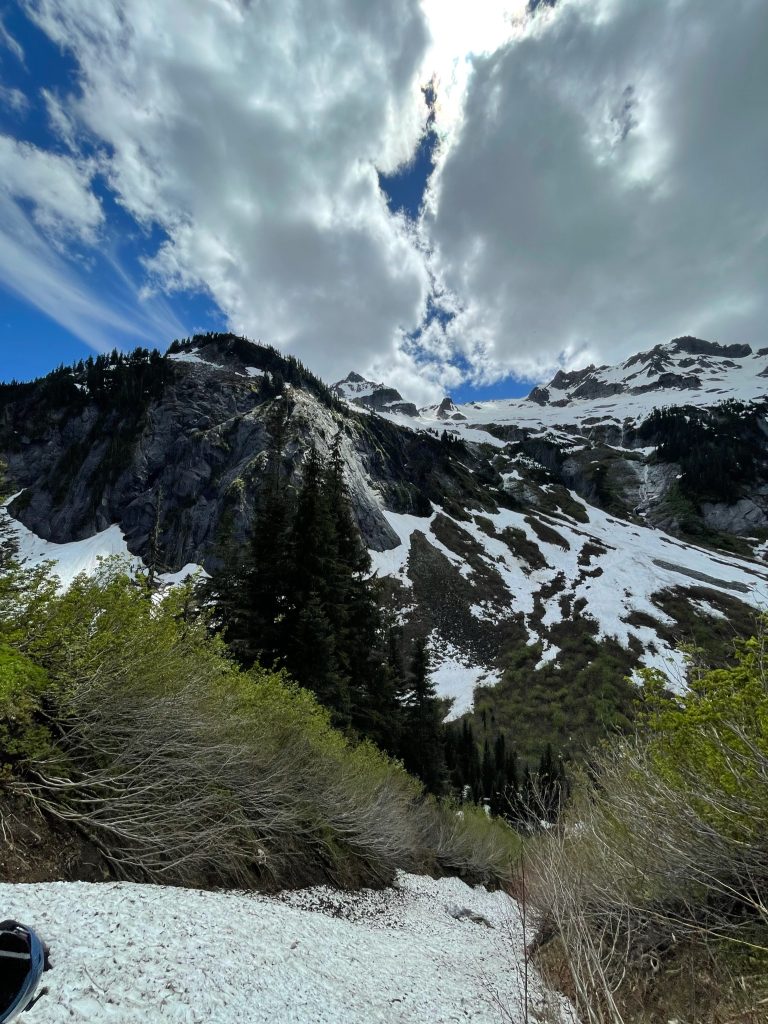
Summit Policy
Sahale Outdoors cannot guarantee attainment of the summit. Unpredictable factors such as weather, route conditions, personal abilities, or the capabilities of fellow climbers may lead to circumstances rendering an ascent unsafe. Consequently, the group may need to turn back without reaching the summit. Sahale Outdoors bears no responsibility for the failure to reach the summit, whether due to personal fitness limitations or events inherent to mountaineering (e.g., weather changes, route conditions, avalanche risks, team dynamics, etc.), and such instances will not result in a refund, credit, or rescheduling.
Sahale Outdoors retains the right to dismiss a participant from a program or relocate them to a lower altitude if, at the discretion of the Sahale Outdoors Guide Staff, it is determined that the participant is physically, technically, or psychologically unprepared for or incapable of engaging in the program. This decision may be made for any reason that could jeopardize the safety, health, or well-being of the participant or the entire group. In such cases, the participant is not eligible for refunds or credits and is financially responsible for all additional costs related to an early departure, including evacuation, transportation, hotel accommodations, meals, etc.
Indigenous Land
Nooksack
“Our ancestors set the rules we live by. It is our job to take care of this land through the ways that have been handed down to us, from generation to generation, so that we can make a better future for our children.”
Nooksack Cultural Resources Department
The Nooksack people have lived along the Nooksack River, from Bellingham Bay to Kweq’ Smánit/Kulshan (Mt. Baker), since time immemorial. There is no record in Nooksack tradition of ever living anywhere else. Their name comes from a place name in their language, and translates to “always bracken fern roots,” illustrating their close ties to the land and the resources that nourish their people.
The Nooksack have fought hard for their tribal lands and rights, becoming a federally recognized tribe in 1973, a hundred years after they defied attempts to force them to move from the Nooksack Valley to the Lummi Reservation, since they were not granted a reservation in the Point Elliott Treaty of 1855. A major focus of Nooksack tribal programs today is land and resources, with a special emphasis on fishing. Fishing in the Nooksack River and salt water areas is an important source of income and food for many families, as well as being a source of cultural pride and identity.
~ This information was found on NooksackTribe.org
